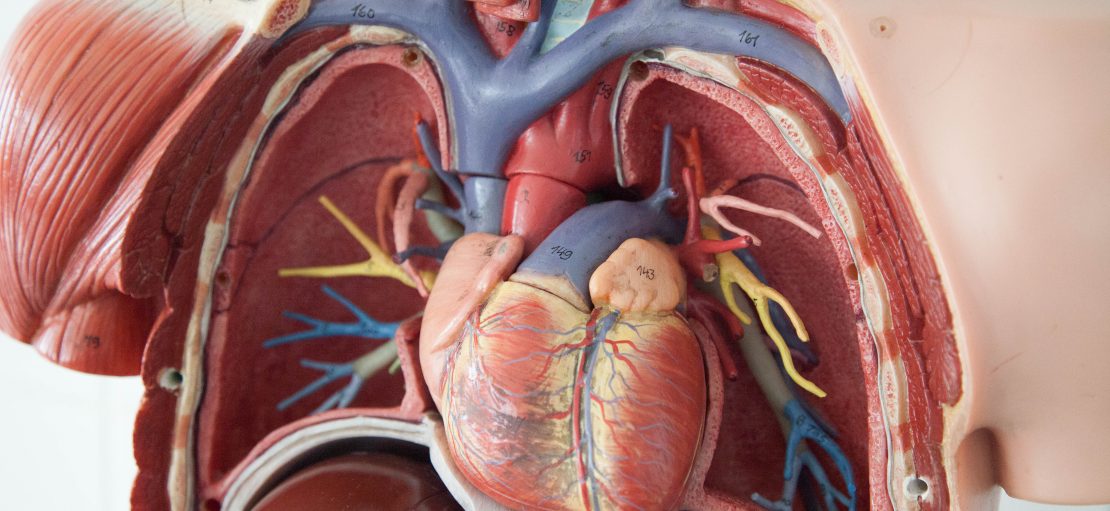
The Cardiovascular Board held its fall meeting on Friday, December 9, 2022. The agenda provided an opportunity to update the Specialty Board on activity at ABIM and allowed for discussion of pressing issues in the field. The Cardiovascular Board was joined by guests from the American College of Cardiology (ACC), the American Society of Echocardiography (ASECHO), the American Society of Nuclear Cardiology (ASNC), the Heart Failure Society of America (HFSA) and the Heart Rhythm Society (HRS).
The following is a summary of the fall meeting.
Leadership Update
Richard J. Baron, MD, President and Chief Executive Officer, ABIM
Dr. Baron presented an overview of ABIM’s progress on a number of fronts since the Cardiovascular Board met in the spring, including:
- The continued success and growth in participation of the Longitudinal Knowledge Assessment (LKA®), noting that enrollment for the LKA opened December 1, 2022, in 15 specialties for physicians with an assessment due in 2023. Three specialties—Critical Care Medicine, Infectious Disease and Pulmonary Disease—became newly available this year.
- ABIM’s concentrated efforts in advancing diversity, equity and inclusion work streams, including research, listening sessions, staff trainings, cultural celebrations and analysis of ABIM’s programs and services, while addressing any inequities discovered.
- The ongoing campaign against medical misinformation, which remains a growing concern in the medical community. ABIM is actively working with organizations across the House of Medicine to build a comprehensive approach identifying strategies and tactics that can be employed to battle misinformation and promote accurate information.
Diversity, Equity and Inclusion (DEI) Update
The Cardiovascular Board received an update on ABIM’s DEI work from Lorna Lynn, MD, Vice President of Medical Education Research; Kelly Rand, MA, CPH, Manager of Diversity and Health Equity; and Pamela Browner White, Senior Vice President of Communications and Chief DEI Officer.
Ongoing work in DEI includes a pilot program incorporating differential item functioning analysis in ABIM assessments, design of a study investigating the impact of patient race and ethnicity identifiers in assessment items, developing health equity questions and reporting on the demographic characteristics of the internal medicine workforce.
Dr. Lynn clarified several points in answer to queries from members of the Specialty Board, noting that ABIM currently includes race identifiers in assessment questions in instances where race is clinically relevant. One member inquired about efforts to diversify the Item-Writing Task Force (IWTF) responsible for developing assessment questions, and suggested that geography should be considered to better represent the diversity of cardiovascular medicine across the country. ABIM is actively seeking to increase diversity on the IWTF, specialty boards and approval committees, and Dr. Lynn noted that geography is a consideration in those efforts as well.
Dobbs v. Jackson: Implications for Cardiovascular Disease
The Cardiovascular Board held an open discussion on the implications of the 2022 Dobbs v. Jackson Women’s Health Organization ruling for the discipline of cardiovascular disease, specifically those areas under the oversight of the Specialty Board, including training, assessments and stakeholder relationships within the cardiovascular community.
The discussion touched on multiple aspects of the issue, such as bodily autonomy and decision-making, medical training for residents, access to fundamental care, trust in health care institutions and the erosion of provider-patient relationships, especially in rural areas. Members also pointed out that the ruling represents the removal of medical professionals from conversations about decisions that affect them and their patients. The issue was connected to the ongoing spread of misinformation, underscoring the professional obligation of physicians to advocate for their patients.
In closing, staff informed the Specialty Board that ABIM is conducting a formal content analysis of themes found throughout analogous discussions by all of the ABIM specialty boards and may consider an article authored by the members of the ABIM Council to illustrate the widespread and cascading effects of Dobbs v. Jackson on the internal medicine community.
Maintenance of Certification (MOC) in 2023
The Specialty Board received an overview of upcoming MOC milestones from Florence Mickens, Program Operations Manager, and Weifeng Weng, Ph.D., Director of Research Analysis. In January 2023, ABIM will resume evaluation of physician certification status following a two-year extension of MOC requirements for physicians in most disciplines due to the COVID-19 pandemic. (Four disciplines—Critical Care Medicine, Hospital Medicine, Infectious Disease and Pulmonary Disease—received extensions through 2023 due to the disproportionate impact of COVID on physicians in those specialties.)
The presenters provided an overview of the robust communications strategy aimed at building awareness of the upcoming deadline in order to minimize the number of diplomates who become “Not Certified.” Communications include monthly targeted emails (June through January) highlighting opportunities for earning MOC points, such as society meetings and activities, UpToDate® and thousands of other Continuing Medical Education activities. Some early career physicians who have not yet been through an MOC cycle are at risk, possibly because of their lack of familiarity with the MOC process. ABIM recommends that all physicians sign into their personalized Physician Portal to check on their requirements.
The presentation also highlighted an opportunity for physicians with lifetime certificates—that is, those who initially became certified before 1990—to enroll in the LKA as a way to meet their 2023 assessment requirement in order to remain “Participating in MOC.” As a reminder, lifetime certificate holders are never at risk of losing certification for not participating in MOC. The physician will be shown as “Certified” on the ABIM website, but listed as not participating in MOC unless they meet the assessment requirement. The change was made and announced in 2013 to become effective in 2023 in the interest of providing more information for patients on whether a physician is demonstrating that they are staying current in knowledge and practice.
Enrollment for all ABIM assessments, including the LKA, the traditional, 10-year MOC exam and the initial certification exam, opened December 1, 2022.
Board members raised a variety of questions in response to the MOC presentation including:
- Can ABIM further streamline the process to earn MOC points for CME activities?
- Are there other unexplored pathways to communicate with at-risk diplomates?
- Is ABIM sure that diplomates understand the financial advantage of choosing the LKA?
ABIM staff noted the questions to address in the future.
Longitudinal Knowledge Assessment (LKA®) Update
Jeff Miller, ABIM’s Chief Information Officer, provided an update on the progress of the LKA since spring 2022, including overwhelmingly positive feedback from participants. Of more than 5,100 diplomates surveyed, 91% of respondents reported that they found the LKA useful for learning, and 75% said they would recommend it to a colleague. ABIM will continue to gather data through interviews, a user panel, an in-depth study of learning and an annual survey. Several diplomates have shared their positive LKA experiences in short blog posts, reflecting on its flexibility, convenience and actionable feedback.
The Specialty Board then received a live demonstration of the LKA platform and user experience. (A video walk-through is also available online.) Among other things, it was pointed out that questions on the LKA expire each quarter, and that questions are “retired” from use so that diplomates will never see the same question twice if they continue in the LKA for multiple five-year cycles. This means that there is an emphasis on continually developing new items for the assessment and underscores the importance of the Item-Writing Task Force (IWTF) responsible for writing questions. ABIM is actively seeking item-writers, and instructions and criteria for application, as well as a full list of all governance openings can be found online.
ABIM is analyzing large amounts of data gathered during the initial roll-out of the LKA, and working on optimizing the ongoing development of the assessment.
Members of the Specialty Board offered suggestions to improve the LKA experience, such as using retired questions as a study tool, offering the option to suppress the feedback and rationale feature, hyperlinking rationales to resources and creating more opportunities for diplomates to try the platform before committing to it.
The presenters also described how the passing score is set, noting that ABIM employs processes to monitor the platform to ensure the integrity of the exam, and uses the same standard-setting process for the passing score on both the LKA and the traditional, 10-year MOC exam. Standard-setting is performed every five to seven years in line with best psychometric practices.
In response to questions from the Specialty Board, the presenters noted that while the long-form MOC exam allows just over two minutes per question, the LKA allows up to four minutes per question and, on average, diplomates answer LKA questions in just under two minutes indicating they have plenty of time to answer the questions. In addition, they can draw from an annual 30-minute time bank if they need extra time on any particular question. Mr. Miller also confirmed that ABIM will provide medical societies with aggregate feedback about diplomate performance on the LKA related to the blueprint to facilitate the development of societies’ tailored learning programs.
Enrollment for the 2023 LKA opened December 1, 2022. The LKA is not available in some cardiovascular subspecialties (Adult Congenital Heart Disease, Advanced Heart Failure and Clinical Cardiac Electrophysiology, which will be revaluated for 2024). As an alternative, physicians have the option of pursuing the Collaborative Maintenance Pathway for cardiovascular disease. Physicians who are due for an assessment in 2023 and considering the LKA are encouraged to enroll early to take advantage of the most time possible to answer questions. The first round of questions is currently available as of January 1, 2023; the questions expire at the end of the first quarter (March 30).
Review Committee for Internal Medicine (RC-IM) Cardiovascular Disease Subspecialty Nominations
The Cardiovascular Board reviewed the many highly qualified candidates who answered the call for nominations for the RC-IM Cardiovascular Disease Subspecialty position (Adult Congenital Heart Disease, Advanced Heart Failure Transplant Cardiology, Clinical Cardiac Electrophysiology and Interventional Cardiology). The RC-IM is the Accreditation Council for Graduate Medical Education (ACGME) group that ensures training programs in internal medicine and its subspecialties meet the accreditation standards of ACGME. The Specialty Board was tasked with nominating two candidates, from which the RC-IM then selects one nominee to recommend for confirmation by the ACGME Board of Directors.
Prior to the meeting, each candidate was interviewed individually by Specialty Board members. At this meeting, the Cardiovascular Board discussed each candidate before nominating two to forward to the RC-IM.
Report on Standard-Setting in the Cardiovascular Disease MOC Exam
Brad Brossman, MA, Ph.D., Vice President of Psychometrics for ABIM, provided the Cardiovascular Board with a brief overview of the standard-setting process and the Angoff method used to make an expert judgment on the appropriate passing score or performance standard for certification assessments. The performance standard is the minimum score that must be achieved to pass an assessment, and is typically held constant for consecutive assessment administrations to ensure that participants are held to the same standard over time. Dr. Brossman reviewed the process for adopting a passing score, including the two sources of evidence considered in collaboration to develop a valid and defensible passing score.
In consideration of the policy information presented, the Specialty Board was then asked to set the passing score for the Cardiovascular Disease MOC exam. The Specialty Board members discussed the recommended passing score and policy implications of their decision at length, and considered the ramifications for all stakeholders, including physicians, patients and society partners before voting on the new standard. The group noted that the decision would affect the October 2022 cohort of physicians who took the MOC exam in Cardiovascular Disease.
Update from the Cardiovascular Approval Committees
Dominick J. Angiolillo, MD, Ph.D., University of Florida Health System; Chair of the Interventional Cardiology Traditional, 10-Year MOC Exam Approval Committee
Larry Dean, MD, University of Washington School of Medicine; Chair of the Cardiovascular Disease LKA Approval Committee
Savitri E. Fedson, MA, MD, Michael E. DeBakey VA Medical Center; Chair of the Advanced Heart Failure and Transplant Cardiology Traditional, 10-Year MOC Exam Approval Committee
Mario J. Garcia, MD, Montefiore Medical Center; Chair of the Cardiovascular Disease Traditional, 10-Year MOC Exam Approval Committee
David E. Haines, MD, Oakland University William Beaumont School of Medicine; Chair of the Clinical Cardiac Electrophysiology Traditional, 10-Year MOC Exam Approval Committee
The Cardiovascular Board works with seven approval committees responsible for approving all assessment content and maintaining the assessment blueprints in Cardiovascular Disease and five subspecialties: Adult Congenital Heart Disease, Advanced Heart Failure and Transplant Cardiology, Cardiovascular Disease, Clinical Cardiac Electrophysiology and Interventional Cardiology. Each subspecialty has a traditional, 10-year MOC exam Approval Committee (which also deals with the initial certification exam). In addition, Cardiovascular Disease and Interventional Cardiology each have an LKA Approval Committee. (The LKA is not currently available in Advanced Heart Failure and Transplant Cardiology, Adult Congenital Heart Disease or Clinical Cardiac Electrophysiology; see the LKA Update above.) The committee chairs described the meeting process and their respective committees’ interaction with the IWTF, and identified the committees’ current challenges and recent successes.
The Specialty Board discussed the challenges of providing adequate training, feedback and a sense of connectedness for item-writers, as well as recruitment and retention of item-writers with the increasing demand for assessment items. The committee chairs agreed on their interest in holding overlapping meetings between their respective committees to encourage collaboration and facilitate getting timely feedback to item-writers, fostering mentorship, quality and direct feedback. They also discussed inviting item-writers to participate in Approval Committee meetings. In 2023, a new feature will be launched to provide feedback from the Approval Committees to the IWTF on every assessment item.
In Closing
The Cardiovascular Board values the feedback and commentary of the entire medical community, including diplomates and society partners.
Do you have any questions? Are you interested in getting involved?
If you have questions after reading this report, please connect with us through the following channels:
- Subscribe to the ABIM blog.
- Call 1-800-441-ABIM (2246).
- Email request@abim.org.
- Join our Governance to help guide our future direction.
Join our Community Insights Network to share your feedback.



